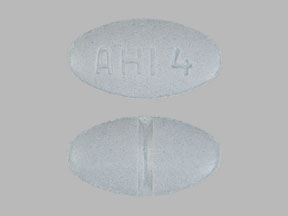
Glimepiride Coupons & Savings Card – Discount Prices from $18.31
Generic for: Amaryl
Glimepiride, also known by its brand name Amaryl, is an oral medication prescribed for managing type 2 diabetes in adults. It is most effective when combined with a healthy diet and regular exercise. Glimepiride belongs to a category of drugs called sulfonylureas and works by stimulating the pancreas to release more insulin, helping to lower blood sugar levels. Properly managing blood sugar can prevent complications such as kidney damage, blindness, nerve issues, and reduces the risk of heart attacks or strokes. While some people may experience side effects like headaches or low blood sugar, it is important to follow your healthcare provider’s instructions. Always consult with your doctor, nurse, or pharmacist before starting any new medication or treatment plan.
Our coupons are free to use. Before paying, show the pharmacist your Glimepiride savings card to get your free discount. Use our filters below to edit the prescription box to match your needs. The Glimepiride prices will update based on your prescription needs. Above our Glimepiride coupons, you can change your location to see pharmacy prices and costs in other areas. We're here to help you buy Glimepiride at the lowest price with our prescription discount card.
My prescription
Edit
4MG, Glimepiride (90 Tablets)
Select pharmacy

CVS
$26.46
COUPON PRICE
Albertsons
$18.31
COUPON PRICE
Walgreens
$21.46
COUPON PRICE
Walmart
$28.40
COUPON PRICEGlimepiride savings card
Show this card to your pharmacist
Albertsons
$18.31
BIN
ID
PCN
GRP
015995
LHKPX306653
GDC
DR33
Powered by
Glimepiride, also known by its brand name Amaryl, is an oral medication prescribed for managing type 2 diabetes in adults. It is most effective when combined with a healthy diet and regular exercise. Glimepiride belongs to a category of drugs called sulfonylureas and works by stimulating the pancreas to release more insulin, helping to lower blood sugar levels. Properly managing blood sugar can prevent complications such as kidney damage, blindness, nerve issues, and reduces the risk of heart attacks or strokes. While some people may experience side effects like headaches or low blood sugar, it is important to follow your healthcare provider’s instructions. Always consult with your doctor, nurse, or pharmacist before starting any new medication or treatment plan.
Our coupons are free to use. Before paying, show the pharmacist your Glimepiride savings card to get your free discount. Use our filters below to edit the prescription box to match your needs. The Glimepiride prices will update based on your prescription needs. Above our Glimepiride coupons, you can change your location to see pharmacy prices and costs in other areas. We're here to help you buy Glimepiride at the lowest price with our prescription discount card.
More prescriptions for diabetes type 2
coupons from$330.34Save 87%
coupons from$511.43Save 72%
coupons from$24.66Save 44%
coupons from$480.57Save 64%
coupons from$25.03Save 80%
coupons from$52.03Save 72%
coupons from$37.25Save 72%
coupons from$67.09Save 80%
More prescriptions for diabetes type 2
Cycloset Save 87%coupons from $330.34
Symlinpen 60 Save 72%coupons from $511.43
Glucotrol Xl Save 44%coupons from $24.66
Pioglitazone-glimepiride Save 64%coupons from $480.57
Humalog Kwikpen Save 80%coupons from $25.03
Novolin N Save 72%coupons from $52.03
Glyburide Micronized Save 72%coupons from $37.25
Novolog Mix 70/30 Save 80%coupons from $67.09
Glimepiride dosage forms
Use our Glimepiride 1MG coupon with prices from $9.02 for 1 Tablet. You can also use our Glimepiride 1MG coupon with prices from $9.73 for 30 Tablets. We have a Glimepiride 1MG coupon with prices from $10.22 for 50 Tablets. You can use our Glimepiride 1MG coupon with prices from $17.22 for 90 Tablets.
Dosage Quantity Price from Per unit 1MG 1 Tablet $9.02 $9.02 1MG 30 Tablets $9.73 $0.32 1MG 50 Tablets $10.22 $0.20 1MG 90 Tablets $17.22 $0.19 1MG 100 Tablets $17.47 $0.17 1MG 180 Tablets $19.44 $0.11 1MG 500 Tablets $27.35 $0.06 2MG 1 Tablet $9.03 $9.03 2MG 30 Tablets $9.88 $0.33 2MG 50 Tablets $10.47 $0.21
| Dosage | Quantity | Price from | Per unit |
|---|---|---|---|
| 1MG | 1 Tablet | $9.02 | $9.02 |
| 1MG | 30 Tablets | $9.73 | $0.32 |
| 1MG | 50 Tablets | $10.22 | $0.20 |
| 1MG | 90 Tablets | $17.22 | $0.19 |
| 1MG | 100 Tablets | $17.47 | $0.17 |
| 1MG | 180 Tablets | $19.44 | $0.11 |
| 1MG | 500 Tablets | $27.35 | $0.06 |
| 2MG | 1 Tablet | $9.03 | $9.03 |
| 2MG | 30 Tablets | $9.88 | $0.33 |
| 2MG | 50 Tablets | $10.47 | $0.21 |
| 2MG | 60 Tablets | $10.76 | $0.18 |
| 2MG | 90 Tablets | $17.66 | $0.20 |
| 2MG | 100 Tablets | $17.96 | $0.18 |
| 2MG | 180 Tablets | $20.32 | $0.11 |
| 2MG | 360 Tablets | $25.65 | $0.07 |
| 2MG | 500 Tablets | $29.79 | $0.06 |
| 2MG | 1080 Tablets | $46.95 | $0.04 |
| 3MG | 90 Tablets | $1431.65 | $15.91 |
| 3MG | 100 Tablets | $1588.69 | $15.89 |
| 4MG | 90 Tablets | $18.44 | $0.20 |
| 4MG | 1 Tablet | $9.04 | $9.04 |
| 4MG | 4 Tablets | $9.15 | $2.29 |
| 4MG | 30 Tablets | $10.15 | $0.34 |
| 4MG | 50 Tablets | $10.92 | $0.22 |
| 4MG | 60 Tablets | $11.30 | $0.19 |
| 4MG | 100 Tablets | $18.82 | $0.19 |
| 4MG | 180 Tablets | $21.88 | $0.12 |
| 4MG | 360 Tablets | $28.76 | $0.08 |
| 4MG | 500 Tablets | $34.12 | $0.07 |
| 4MG | 1080 Tablets | $48.98 | $0.04 |
